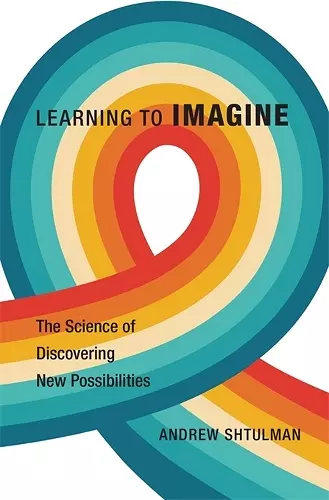Learning to Imagine
The Science of Discovering New Possibilities
Format:Hardback
Publisher:Harvard University Press
Published:15th Dec '23
Should be back in stock very soon

An award-winning cognitive scientist offers a counterintuitive guide to cultivating imagination.
Imagination is commonly thought to be the special province of youth—the natural companion of free play and the unrestrained vistas of childhood. Then come the deadening routines and stifling regimentation of the adult world, dulling our imaginative powers. In fact, Andrew Shtulman argues, the opposite is true. Imagination is not something we inherit at birth, nor does it diminish with age. Instead, imagination grows as we do, through education and reflection.
The science of cognitive development shows that young children are wired to be imitators. When confronted with novel challenges, they struggle to think outside the box, and their creativity is rigidly constrained by what they deem probable, typical, or normal. Of course, children love to “play pretend,” but they are far more likely to simulate real life than to invent fantasy worlds of their own. And they generally prefer the mundane and the tried-and-true to the fanciful or the whimsical.
Children’s imaginations are not yet fully formed because they necessarily lack knowledge, and it is precisely knowledge of what is real that provides a foundation for contemplating what might be possible. The more we know, the farther our imaginations can roam. As Learning to Imagine demonstrates, the key to expanding the imagination is not forgetting what you know but learning something new. By building upon the examples of creative minds across diverse fields, from mathematics to religion, we can consciously develop our capacities for innovation and imagination at any age.
Shtulman ably and incisively navigates this vast, fascinating terrain. * Science *
[Shtulman’s] clear, vivid exploration of his subject and how it works may cheer up adults, gladdened to learn the ways imagination ‘can be expanded through education and reflection.’ * Harvard Magazine *
Imaginations grow and develop as people do. Shtulman argues that one’s imagination can be expanded by using technological advances, moral principles, models and examples, pretense, and, of course, additional information. * Library Journal *
Replete with research across cognitive development, psychology, and education, the book is an inspiring and empowering nudge to nurture our knowledge banks to open up more possibilities, and affirms the importance of education in all its forms, from traditional pre-K–12 to Montessori, from unschooling to self-directed learning and higher education. -- Lauren Lee * Greater Good Magazine *
Brings to light how children cannot fully immerse themselves into imaginative worlds due to their limited knowledge…an insightful read on how knowledge is the foundation for imagination and how paired with collaboration, innovation, and success can thrive. -- Siobhan Patterson * Technical Communication *
This remarkable book explores one of the most exciting topics in all of developmental psychology—the emergence of the imagination. Shtulman is a brilliant theoretician and scientist, and he tells the story of how children’s imaginative powers, surprisingly limited at first, gradually blossom through learning, reflection, and practice. Learning to Imagine is a delight to read, essential for anyone interested in this most extraordinary human capacity. -- Paul Bloom, author of Psych: The Story of the Human Mind
Imagination is the superpower of the human mind, enabling us to simulate and consider alternatives and possibilities. We are often told that childhood is the fertile breeding ground for imagination, but this is a myth, as explained by Andrew Shtulman, the world’s leading expert on children’s imagination. In his new book, Shtulman once again demonstrates his flair for making child development fascinating, easily accessible, and a delight to read. -- Bruce Hood, author of Possessed: Why We Want More Than We Need
Shtulman illustrates, in vivid and compelling detail, common misunderstandings of imagination and its development. Building on hundreds of recent studies, he convincingly shows how a popular narrative about children as imaginative wizards is simply wrong. Imagination requires care and support over many years of childhood to become an enabling force behind innovation. This will be an immensely valuable and timely book for anyone interested in children’s minds, education, and the origins of creative thought. -- Frank C. Keil, author of Wonder: Childhood and the Lifelong Love of Science
Shtulman masterfully weaves together a set of ideas and findings that en face might seem disparate, and in the process he turns common views of the imagination on their heads. An engaging and insightful volume by a brilliant scientist. -- Angeline Stoll Lillard, author of Montessori: The Science Behind the Genius
ISBN: 9780674248175
Dimensions: 210mm x 140mm x 32mm
Weight: 567g
352 pages